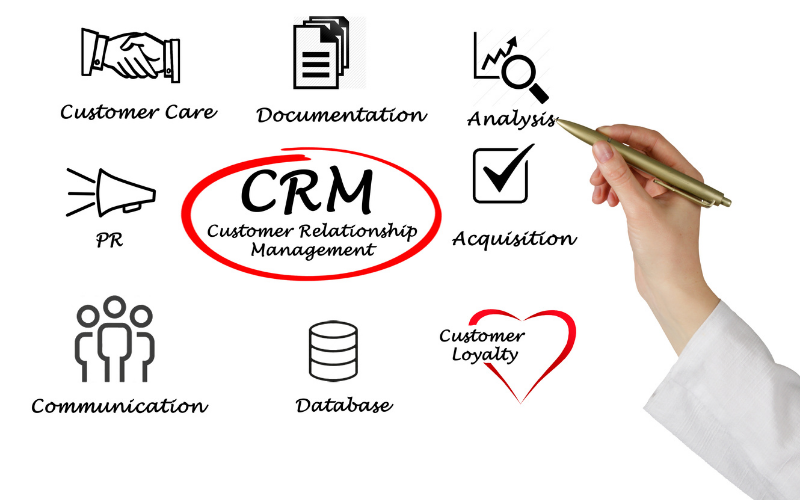I am an MSP and I want to become a Trusted Advisor.
paul lloyd • September 15, 2023
A Trusted Advisor in the MSP market space is aiming for a long-term relationship, not short-term gain, and not to be seen as just a vendor, or worse still, the IT guy! So surely all TSP/MSPs want to be seen as trusted advisors to their clients, with the obvious benefits of repeat business, referrals, and introductions to your client’s other professional advisors. You do not need to “sell” your products or expertise when you are the Trusted Advisor.
But have you put the time and effort in to be able to understand their business and what they are looking to achieve? Are you a true Trusted Advisor?
Here are a few things you need to do to aspire to be Trusted (With a capital T) …
1. Build expertise:
Develop a deep understanding of your area of focus. Build up your knowledge and skills so that you can offer valuable insights and guidance to your clients.
2. Be ethical:
Maintain high ethical standards and always act in your client's best interests. This will help you establish credibility and build a reputation for integrity.
3. Continuously improve:
Always look for ways to improve. Solicit feedback from your clients or colleagues, and use it to adjust and refine your approach.
4. Focus on long-term goals:
A trusted advisor is focused on long-term success, not short-term gains. This means always looking out for your client's best interests, even sacrificing immediate benefits.
5. Be honest transparent AND confidential:
Honesty and transparency are critical to building trust. Always be upfront about your capabilities and limitations; do not be afraid to admit when you do not know something. Equally, confidentiality is key here.
6. Objective Perspective:
Trusted Advisors offer an objective viewpoint. They are not influenced by personal biases or conflicts of interest that could compromise their advice
7. Client-Centric Approach:
Trusted Advisors prioritize the needs and goals of their clients. They take the time to understand their client's unique situations and tailor their advice accordingly.
8. Communication Skills:
Finally, they are effective communicators, able to explain complex concepts in a way that clients can understand. They also listen actively to their client's concerns and questions.
The different types of client relationships
In the book Trusted Advisor,
David Maister, Charles Green, and Robert Galford
discuss four different types of client relationships, you can evaluate your own stages of relationships using the reference guides below and see where you are and how to evolve.
There are four types of relationships that a service professional can have with their clients.
1. The first type
involves being seen primarily as a product vendor or someone who performs one-off tasks. This type of relationship is the easiest to master and usually occurs at the beginning of a client relationship. It is an opportunity to introduce and build upon your expertise.
2. The second type
involves being viewed as someone who focuses on solving general problems using a range of products and services. At this level, clients begin to see that you possess capabilities beyond the technical skills required to execute the tasks they initially hired you to perform. As a result, you may become a reliable resource and problem solver for more in-depth issues.
3. The third type
involves being turned to as a professional who can put issues into context and provide perspective. At this stage, your ability to offer advice and identify client issues is highly valued. This can lead to transitioning to the level of Trusted Advisor.
4. The fourth type
involves being the go-to person for clients when issues arise. Once you have reached the level of Trusted Advisor, virtually all issues—personal or professional—are on the table for discussion and exploration. You are there (or called upon) for times of great accomplishments, triumphs, defeats, and crises. This level can be the most time-consuming but also the most rewarding.
Sellerly
has been and continues to be a Trusted Advisor to businesses large and small over the years, why not learn from our expertise and experience and join our exclusive Sales Clubs
and achieve the success you deserve on your terms, and maximise your potential today.
Thanks for reading,
Paul Lloyd, Sellerly.
MSP/ VAR Sales Problem Solver,
Sales Management Mentor
020 8148 6475 / paul@sellerly.co.uk

Have you ever lost a client without even knowing they were looking around? For even the most “on the ball” Salesperson this is probably a very real reality. You lose clients without knowing they were looking . Less than 4% of your customers will tell you if they are unhappy so you may never know if you have a customer on the fence. There is something very British about not complaining about poor service, so here we take a look at the r easons why your customers may leave and change to another competitor.

Stages 3 - 4 - Beginning to Scale Up to Scaling Out So, in the last article, we looked at the two “starter” stages for a Sales business when it becomes successful and starts growing. Now we look at the pivotal maturing stages entitled loosely Beginnings of Scaling and Scale-Out. These stages occur when a f ew key things are met/achieved , usually, the business has an increasing number of teams and key sales roles in the organisation, 3-10+ Account Executives, multiple Sales Reps, and a growing Management team . Have a look below at the infographic and see where your organisation is measuring up. Where do you fit? How Sales Mature and Excellent are you / your organisation?

Stages 1 -2 - From a Founder Seller to a Small Sales Team So, congratulations, your Sales business is successful and growing, but is it maturing? Sales planning, whether at a company, department, or team level, is necessary for hitting targets and providing a framework for the whole business to strive towards, but do you know where you are in your Sales Maturity? A sales skills maturity model helps you evaluate your current sales skills and identify the areas that need improvement. Everyone needs a plan in their life, and anyone in Sales DEFINITELY needs a plan so we’ve put together this Infographic that details out the stages and milestones an organisation n eeds to typically follow to progress to Sales Excellence and Maturity . It’s a lot of information so we’ve focussed this week on Stages 1 and 2 only – Founder Seller to Small Sales Team , and our next blog will focus on Stages 3 and 4 – Beginnings of Scaling Up and Scale Out. Where do you fit? How Sales Mature and Excellent are you / your organisation?

Where are those New Clients? Over recent years I have spent a lot of time meeting and working with Managed Service Providers / VARs, and when discussing the biggest challenges in their business, it always comes back to the same thing over and over. WINNING NEW CUSTOMERS. This is a challenge that seems to affect any company of any size , whether their turnover is £500k or £40m. They need to win new contracts and new customers. Most of these businesses have reached the level that they have through recommendations and referrals or in the case of the bigger ones some acquisitions as well, rarely it seems going out and actively generating an opportunity and a sale.

Every company needs to do a sales forecast, whether weekly, monthly, or quarterly. Sales forecasts are an essential requirement for all stakeholders. Forecasting is a fundamental tool for businesses to plan, strategize, and make informed decisions. It helps them estimate future revenue, set goals, make informed business decisions, manage inventory, and supply chain, and improve cash flow management A good forecast means no surprises in store, funds in the bank and stock in the warehouse . Healthy forecasts protect companies from tough competitive and market conditions and position them better to adapt, plan, and thrive in the present and future. Based on current industry data and research, it seems most Sales leaders lack confidence in their forecasts, as well as the expertise to improve them. Disorganised and non-formal forecasting processes are a likely culprit. 93% of sales leaders are unable to forecast revenue within 5% , even with two weeks left in the quarter. 67% of organizations lack a formalized approach to forecasting altogether. 80% of sales organisations DO NOT have a forecast accuracy of greater than 75% . 55% of sales leaders do not have high confidence in their forecasting accuracy. (Stats from CSO Insights and Gartner)

What is Lead Gen? “Lead Generation”, or “Lead Gen” for short, is the process of identifying and cultivating potential customers for a business's products or services. It is essential for businesses as it can turn interested parties into paying customers which in turn helps to create a stable customer base and drive sales, this then creates an ongoing cycle where customers give good reviews, which in turn results in customer loyalty and new business from that. Lead Gen also allows for a better understanding of a company's key customers and target markets, their needs and preferences thus allowing for more personalisation of products, services and marketing communications.

“If you are looking to sell to everybody, you will end up selling nothing to nobody” Six reasons why choosing your Niche/Target Market is so important Having a target market is crucial for sales because it allows a Salesperson to focus their efforts and resources on a specific group of customers who are the most likely to be interested in and purchase their products or services. Here are some key reasons why having a target market is important in sales:



